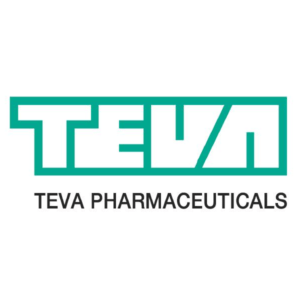Teva Pharmaceutical Industries Ltd (ADR) (TEVA) Announces Abstracts at the ACAAI Annual Scientific Meeting
Teva Pharmaceutical Industries Ltd (ADR) (NYSE:TEVA) announced that five company-sponsored abstracts will be presented at the 2017 American College of Allergy, Asthma and Immunology (ACAAI) Annual Scientific Meeting in Boston, October 26-30, 2017.
Among the accepted abstracts, data from two analyses examined the efficacy of CINQAIR® IV (reslizumab) Injection, a humanized interleukin-5 antagonist monoclonal antibody for the treatment of severe eosinophilic asthma. One abstract presents a post-hoc analysis, measuring the direct effect of CINQAIR® on spirometric “lung age,” and the second presents a post-hoc analysis examining the impact of CINQAIR® on lung function and clinical asthma exacerbations in patients with low baseline lung function.
A post-hoc analysis studied the efficacy of ArmonAir™ RespiClick® (fluticasone propionate) Inhalation Powder and AirDuo RespiClick® (fluticasone propionate and salmeterol) Inhalation Powder in patients previously treated with the same medication administered in alternative inhalers.
Finally, two abstracts from Teva’s Health Economic and Outcomes Research team will be presented. One describes a budget impact model that was developed to assess the economic impact of Short-Acting Beta-Agonists (SABAs) with integrated dose counters among Medicare patients with respiratory diseases. The other describes a retrospective, observational claims-based study that explores the prevalence of comorbidities associated with poor device handling in asthma and/or chronic obstructive pulmonary disease (COPD) patients using SABAs, including ProAir RespiClick®(albuterol sulfate) Inhalation Powder.
“Nearly 25 million people in the U.S. have asthma1 – and that number is growing. This is what drives us to constantly evaluate our treatments – from inhaler therapies with breath-actuated delivery systems to targeted biologic therapy. Our intent is to develop therapies that may enable positive treatment outcomes for patients,” said Dr. Daniel McBryan, MD, Vice President, Respiratory Global Medical Affairs at Teva Pharmaceuticals. “We are excited to be here at the ACAAI Annual Scientific Meeting to showcase our ongoing commitment to scientific research aimed at addressing the unmet needs that still exist for the respiratory patient community.”
Shares of Teva are down nearly 2% to $13.62 in pre-market trading Thursday. TEVA has a 1-year high of $44.13 and a 1-year low of $13.52. The stock's 50-day moving average is $16.42 and its 200-day moving average is $25.08.
On the ratings front, TEVA stock has been the subject of a number of recent research reports. In a report released yesterday, Evercore ISI analyst Umer Raffat maintained a Buy rating on TEVA, with a price target of $38, which represents a potential upside of 173% from where the stock is currently trading. On the other hand, on October 20, Barclays' Douglas Tsao maintained a Hold rating on the stock and has a price target of $19.
According to TipRanks.com, which ranks over 7,500 financial analysts and bloggers to gauge the performance of their past recommendations, Umer Raffat and Douglas Tsao have a yearly average loss of -2.0% and a return of 2.0% respectively. Raffat has a success rate of 67% and is ranked #3484 out of 4700 analysts, while Tsao has a success rate of 54% and is ranked #2102.
Sentiment on the street is mostly neutral on TEVA stock. Out of 20 analysts who cover the stock, 14 suggest a Hold rating , 3 suggest a Sell and 3 recommend to Buy the stock. The 12-month average price target assigned to the stock is $22.04, which represents a potential upside of 58% from where the stock is currently trading.
Teva Pharmaceutical Industries Ltd. is a global pharmaceutical company, which provides patient-centric healthcare solutions. It operates through two segments: Generic Medicines and Specialty Medicines. The Generic Medicines segment includes chemical and therapeutic equivalents of originator medicines in a variety of dosage forms, including tablets, capsules, injectables, inhalants, liquids, ointments and creams. The Specialty Medicine segment engages in the provision of core therapeutic areas of central nervous system medicines.
More recent articles about TEVA:
The Good and the Ugly Side of Biotech: Celsion Corporation (CLSN), Cytokinetics, Inc. (CYTK)
Cytokinetics, Inc. (CYTK) Has Not Lost This Bull in the Wake of Phase III Failure
Cytokinetics, Inc. (CYTK) Stock Gets Whacked on Disappointing Clinical Results in ALS
Celsion Corporation (CLSN) Stock Fires to the Roof on Back of New Bull's Confident Bet


